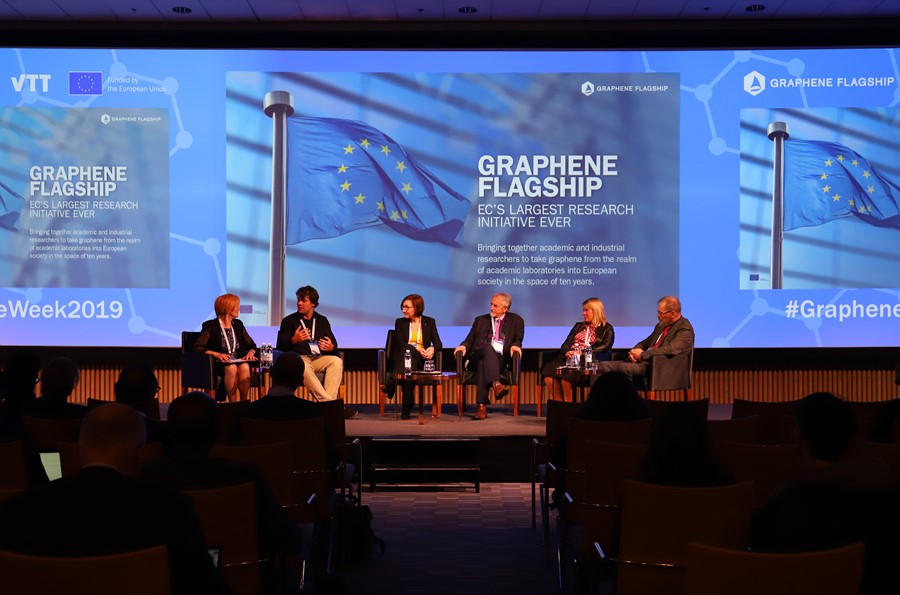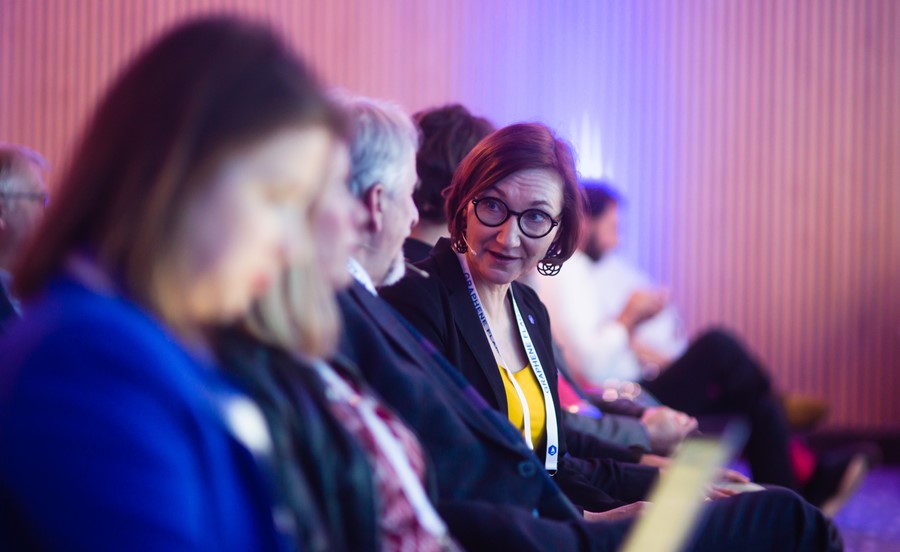Graphene Flagship Spearhead projects to solve Europe’s environmental crisis
European Commission funded research project, the Graphene Flagship, held its annual Open Forum discussion on Monday 23 September. As the first presentation of Graphene Week 2019 – Europe’s leading graphene and layered materials conference – the Open Forum announced the latest advances from research within the Graphene Flagship and its potential to improve Europe’s environmental crisis.
Kari Hjelt, head of innovation at the Graphene Flagship, led the presentation with an overview of the project's progress so far. Now, half-way through the ten-year initiative, the Graphene Flagship boasts an impressive 155 partners across 22 European countries. Looking to the future, the Graphene Flagship has ambitious plans to continue its growth past its planned 2023 end date.
Hjelt announced eleven application-oriented spearhead projects, all of which are in their inception phase. The projects will focus on using graphene technology to solve some of Europe's common industrial and environmental concerns, such as issues related to water purification and energy storage. Projects include graphene for applications in water purification, automotive, energy, photonics, solar cells, aviation, optoelectronics and health and safety.
Airbus, for example, has ambitious goals to be the first organisation to take advantage of emerging materials. Elmar Bonaccurso, senior scientist and project manager for surface technology at Airbus, followed to explain how widely used materials for the aviation industry, such as metals and ceramics, will always be prevalent, but graphene will provide the essential enhancements to their properties to take the sector to the next level.
"We want to improve the functions and properties of these materials. Whether that's metal, ceramics or polymers," explained Bonaccurso. "Graphene has already proven it can provide mechanical reinforcement, improved electrical and thermal conductivity, as well as impressive electrostatic or magnetic properties. Further development could prove useful for other aviation applications, such as lightning protection and energy storage."
The Open Forum concluded with a panel discussion with Jari Kinaret, director of the Graphene Flagship, Anna Motta, global research and development (R&D) manager at Graphene Flagship Associated Member Talga Technologies, Maria Smolander, research team leader at Graphene Flagship partner VTT, Finland, Luca Banszerus of a researcher at Graphene Flagship partne RWTH Aachen University in Germany and Dusan Losic, a professor from the University of Adelaide.
The experts discussed the potential environmental advantages of graphene development, including improvements to current recyclability practices.
"As graphene research and applications continue to develop, we can replace environmentally unfriendly materials used in industry," explained Motta. "We can also improve recyclability in many cases. For example, carbon-based materials with a barrier film of metal can create huge problems related to recyclability. If your barrier film is made of carbon, then recycling and the environmental impact is significantly reduced."
This sentiment was echoed by Smolander, whose area of research focuses on developing environmentally friendly and biodegradable solutions in electronics, with a specific focus on wearable applications. When quizzed on her predictions for the future of graphene research, Smolander cited her ideal outcome as, "the creation of a biodegradable, compostable and environmentally friendly wearable sensor."
"The activities of the Graphene Flagship will be continued in Horizon Europe," explained Jari Kinaret, director of the Graphene Flagship. "Of course, there are questions relating to funding, duration and the way the Flagship activities will be implemented – but we know for sure that they will continue. 2023 is not the end."
Graphene Week 2019 is currently being held at the Marina Congress Centre in Helsinki, Finland. As Europe's largest conference for graphene and related layered materials (GRMs), more news, developments and announcements will be shared throughout the coming week. For more information on Graphene Week 2019, please visit the Graphene Flagship website: https://graphene-flagship.eu.

Graphene Week 2019 Open Forum announced the latest advances from research within the Graphene Flagship and its potential to improve Europe’s environmental crisis.

The experts discussed the potential environmental advantages of graphene development, including improvements to current recyclability practices.




